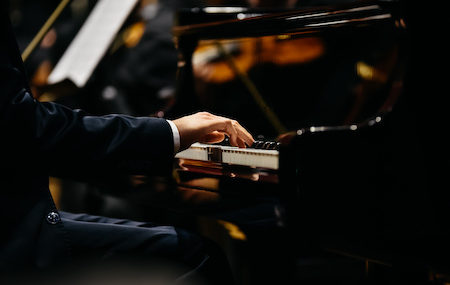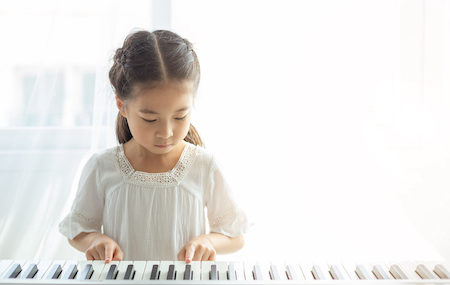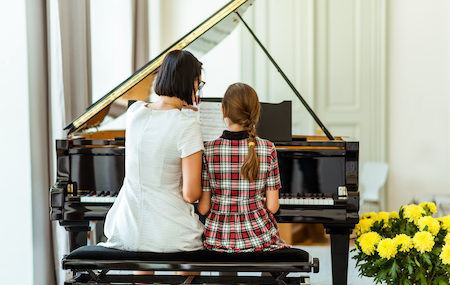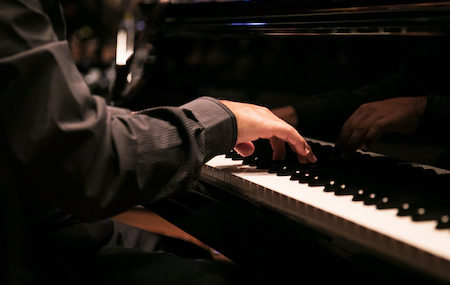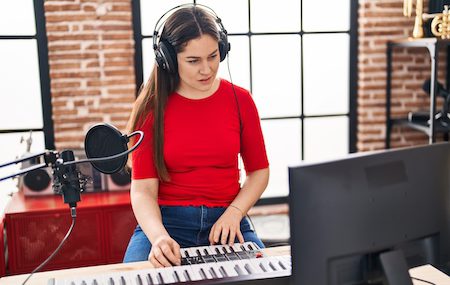Some kids dream big about their musical aspirations. They see themselves as the next Cory Henry or Jacob Collier. They want to take their piano lessons as far as they can go.
Learning the piano is not just about playing beautiful music; it’s a journey that shapes character, discipline, and creativity. Whether you’re a budding Beethoven or a parent cheering from the sidelines, here are some tips to help you navigate the enchanting world of pianos.
Invest in the Right Instrument
Before your child embarks on their musical adventure, let’s talk pianos. Choosing the right instrument is like finding the perfect dance partner; it should complement your style and inspire you to move effortlessly. Whether you’re considering a grand piano, an upright piano, or even a digital piano, each has its unique charm.
For those dreaming of classical masterpieces, a grand piano might be the perfect match. Its rich sound and responsive touch make it a favorite among serious pianists. If space is a concern, an upright piano is a more compact option without compromising quality. Digital pianos offer versatility and modern features that can enhance the learning experience.
New vs. Used: Weighing Your Options
Now that you’ve decided on the type of piano, the next question is whether to go for a brand-new or lovingly pre-owned instrument. Both options have their merits.
A new piano brings the joy of being the first to touch those keys, and it often comes with a warranty, ensuring peace of mind. However, don’t dismiss used pianos too quickly. They can offer excellent value for money, especially if they’ve been well-maintained. Many professional pianists start on used instruments, and with proper care, they can last a lifetime.
At our piano showroom, we take pride in curating a selection of both new and used pianos, ensuring that every aspiring pianist finds their perfect match.
Maintain Your Melody Machine
Your piano is not just an instrument; it’s a cherished member of the family. Regular maintenance is the key to keeping those melodies flowing smoothly. Simple tasks like tuning, cleaning, and occasional inspections by a professional can extend the life of your piano and ensure it remains a joy to play.
Teaching your child the importance of caring for their instrument instills a sense of responsibility and respect for the craft. It’s a lesson that goes beyond the music room and into their everyday lives.
Create a Musical Haven at Home
To foster a love for the piano, create an inviting and inspiring space at home. Place the piano in a well-lit area, adorned with a comfortable bench and perhaps a few motivational posters. Surround the piano with musical influences – think portraits of Mozart, Chopin, or even a framed copy of your child’s first recital program.
Encourage regular practice by making it a pleasant experience. A dedicated space not only enhances concentration but also makes practicing feel like less of a chore and more of a delightful routine.
Celebrate Milestones, Big and Small
Learning the piano is a journey filled with both challenges and triumphs. Celebrate every milestone, no matter how small. Whether mastering a tricky piece, conquering a challenging technique, or performing at a local recital, each achievement is a step toward musical mastery.
Parents, your role is crucial here. Be the enthusiastic audience, the patient listener, and the constant cheerleader. Your support and encouragement will fuel your child’s passion for the piano and make this musical journey a truly joyous one.
Let the keys be your guide, and may your piano journey be filled with beautiful melodies and endless inspiration.



